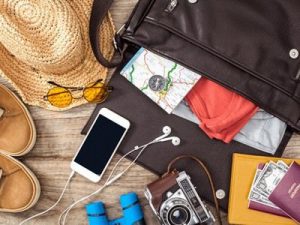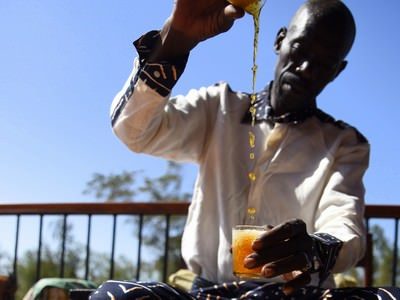 |
Since May 1, 2015, the paid biometric visa has been abolished by the government. Only a valid passport will be required in addition to the airline tickets |
 |
Major airlines offer direct flights from Europe, typically costing around €500 round trip, with prices varying depending on the time of year. Several charter companies also serve the destination, sometimes with layovers. You can also reach Senegal by road, traveling through Spain, Morocco, and Mauritania. The journey is safe, but make sure to comply with the administrative requirements of each country along the way. |
 |
Year-round, considering Senegal enjoys over 330 days of sunshine per year. However, it’s essential to distinguish between two seasons: The dry season (from November to May): From November to February, temperatures are mild, even cool in January and February (in Saint-Louis and Dakar), including the ocean temperatures. From March to May, the climate remains dry, but temperatures notably rise, reaching over 30 degrees along the coast (and even higher further inland). The rainy season (paradoxically known as the ‘hivernage’ or wintering). Temperatures are at their highest with significant humidity. This period experiences monsoon-like conditions, with more substantial rainfall in the south compared to the north of the country (usually lasting only a few hours). It’s the best time to witness lush landscapes (especially in Saloum and Casamance), but some roads might be challenging to navigate, and individuals might vary in their tolerance to the humidity, which is different from European latitudes. |
 |
|
We strongly advise you to avoid clothing that is too short, sloppy, or overly provocative, especially outside bathing areas and particularly beyond the tourist zones of Dakar and the Petite Côte. You are visiting a country culturally influenced by the dominant religion of Islam, which values a certain level of modesty in attire and discretion.
 |
It is advisable to get vaccinated against yellow fever (valid for 10 years). This vaccine remains mandatory only for passengers coming from yellow fever endemic zones. It is also recommended to get vaccinated against hepatitis A and B, as well as staying up to date with tetanus, poliomyelitis, and diphtheria vaccinations. An anti-malarial treatment is strongly recommended preventively for short stays (Consult your doctor for longer stays). If you plan to travel with your pet, you’ll need to provide a rabies vaccination certificate and a certificate of good health. |
 |
In addition to the recommended vaccines and an anti-malarial treatment before departure, it is advisable to pack a first-aid kit including the following:
|
- The basic kit: aspirin, disinfectants, bandages, tweezers (for splinters, sea urchins, etc.)…
 |
Senegal is a member of the African Financial Community (CFA). The CFA franc has a fixed parity with the euro.
1,000 CFA francs = 1.524 euros
1 euro = 655.957 CFA francs
You can use your euro cheques and bank cards to withdraw money from almost all banking establishments.
|
 |
Before every trip, make sure that your insurance policy adequately covers your stay. On-site, especially in Dakar, agencies represent the main French insurance companies. |
 |
Senegal operates on GMT, which means a one-hour difference with France during winter time and a two-hour difference during summer time. |
 |
The Senegalese electrical network operates on 220 volts, and the power outlets have two round pins, similar to those in France. Please note that power outages, known as ‘délestages,’ are quite common, resulting in intermittent blackouts, especially during the rainy season. |
 | Phone Code: +221 Senegal has an excellent telephone network. You can easily find telecenters for your phone calls or for sending faxes and emails. Similarly, mobile phone networks cover most of the country and offer good quality services, significantly reducing the digital divide by adopting 3G and now 4G in urban areas. Three operators—Orange, Expresso, and Free—dominate the market, providing subscription-based or pay-as-you-go plans. |
You’ll also find numerous cybercafés in both urban areas and rural areas with affordable internet connections. Nowadays, almost all hotels offer free Wi-Fi connections.
Telecom and Internet Operators:
 |
The Senegalese postal services are reliable, with agencies throughout the country. Offices are open from 8:30 am to 4 pm. Additional services such as express mail or money transfers are available.
Other money transfer organizations like Wari, Western Union, or MoneyGram are also present, and you’ll even find them in rural villages.
|
 |
Leaving a tip is customary in a ‘modern’ restaurant but not necessarily in smaller eateries. It’s common, even essential, to bargain depending on the purchase. Bargaining should be seen as an act of exchange and social interaction, beyond the economic aspect. The more you discuss the price and invest time, the more you’ll gain the respect of your interlocutor. Bargaining is often welcomed with street vendors, small shops, and markets. |
Similarly, negotiating the fare for a taxi ride is common (asking locals for an estimation of the ‘real’ price is advisable). However, fares for public transport and long-distance trips in 4 or 7-seater taxis are usually fixed.

Customs and Traditions
Here are some key aspects to understand for a successful stay:
Greetings: They are highly important in Senegal. Generally, Senegalese people are very courteous and incredibly kind, and they expect the same in return.
Greetings are exchanged all the time with everyone, even with strangers. You might say ‘Bonjour, ça va bien?’ (Hello, how are you?) or ‘Nanga def?’ (How are you?), to which the response is ‘Mangi fi rekk’ (I’m fine alone). Using the famous ‘Salamaleikum’ (to which the response is ‘Aleikum Salam’) is also appreciated.
Additionally, here are cultural elements that might enhance your experience:
Asking about family members, even if unknown, is common. Senegalese show high regard for the elderly, so greeting them with due respect is appreciated.
Meals: If given the chance, sharing a meal with a Senegalese family honors the host. Before eating, handwashing is customary. Meals are typically taken sitting on the floor, on a mat (removing shoes beforehand), everyone gathered around a communal dish. Eating with hands is common, but you can request a spoon or fork, which will not be taken amiss. Only the right hand is used (as the left hand is reserved for other uses).
Eating starts after the host says ‘Bismilahi.’ Beverages are usually consumed after the main course. Being offered the best parts or having bones removed from fish before serving are signs of respect towards guests. Men generally eat before women and children.
Tea: The ceremony surrounding the famous Senegalese tea (Ataya) is significant. If offered tea, refusing would be inappropriate. It’s served in three successive glasses, the preparation of which can take at least an hour. They might say, ‘The first is bitter like death, the second is sweet like life, and the third is sweet like love.’
Islam and its pillars: With 95% of the population being Muslim, Islam heavily influences daily life. Witnessing someone performing ablutions in public shouldn’t surprise you.
The five daily prayers structure the day. You might hear the muezzin’s first call to prayer, broadcasted through loudspeakers, around 4:30 am / 5 am. It’s also common to wait for a seller to finish their prayer before finalizing a deal. If your taxi driver doesn’t respond to your questions and seems to mutter quietly while driving, it’s likely they’re praying. In any case, be patient and respectful, never interrupt someone during prayer.
Almsgiving, one of the five pillars of Islam, leads to encountering many beggars, especially in cities. Feel free to give a small coin whenever possible.
Dress Code: As you’re visiting a country where Islam is prevalent, it’s essential to adhere to certain dress codes.
Displaying bare legs (for boys or girls) isn’t well-received by Muslims, so outside bathing areas, wear decent and non-slovenly attire. Avoid shorts and miniskirts.
Many Senegalese in major cities (Dakar, Saint-Louis…) dress in Western style, especially those of the Catholic faith. However, traditional attire, such as boubou or pagne, remains common. Overall, attire, hairstyles, and even jewelry adhere to codes and symbolize social class and age.





